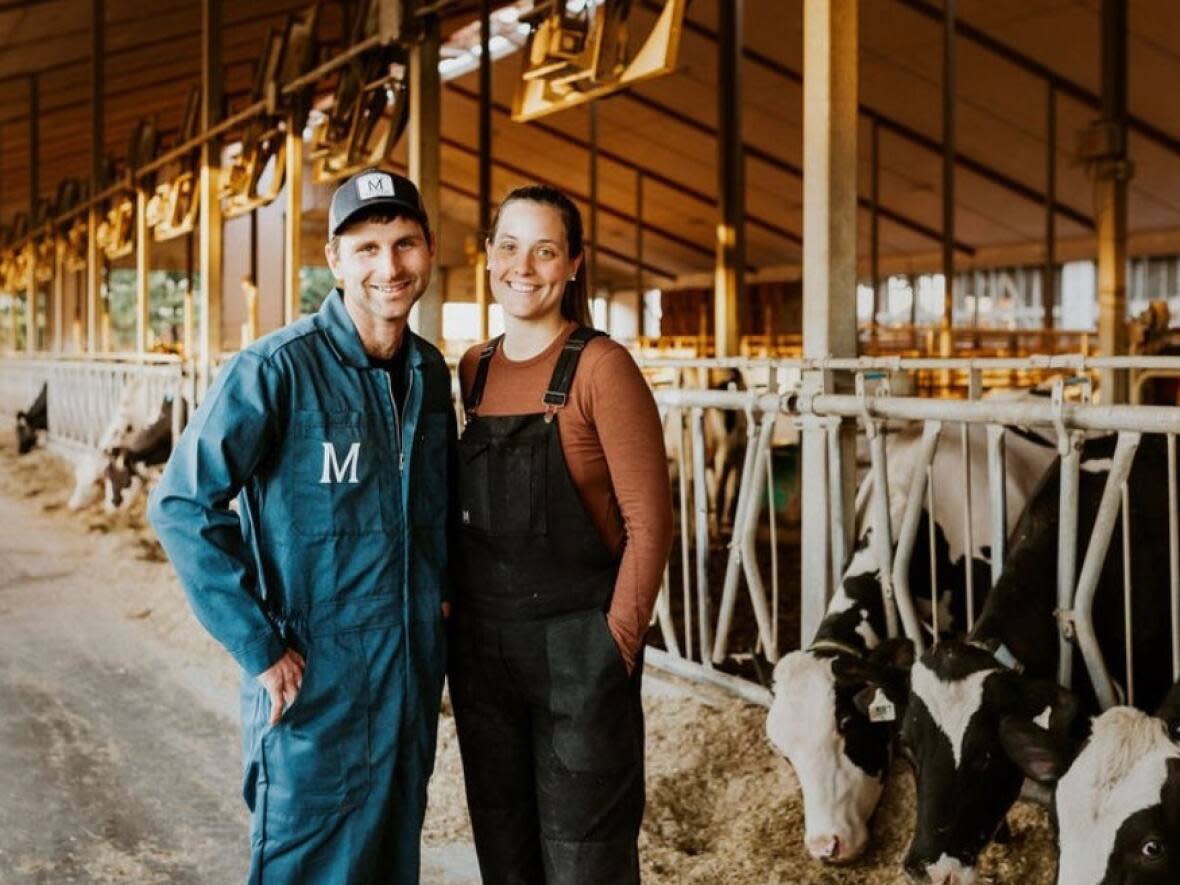Farmer leaving Hamilton for PEI because it's too expensive to farm in Ontario, he says

A Hamilton man who's moving his family to Prince Edward Island to start a farm says high land costs are making it impossible for new people to break into the industry in Ontario — and that other barriers in the system are stopping young farmers all across the country before they even get started.
Ross Toebes, 31, has been working in farming his whole life — but now that he's ready to start his own operation, says he's faced nothing but roadblocks.
"I went to college with several other people that were all passionate about agriculture, and had full intentions of getting into small dairy farms or cash-crop farms," he told CBC News this week. "But … the banks won't take us seriously.
"Of the people I went to college with… I'm virtually the only one still involved in agriculture."
Toebes says money is a big part of the equation: he says farmland in southern Ontario costs nearly four times what it does in PEI. But he also says young people who don't have parents to inherit land from are facing hurdles getting financing: lenders are hesitant to provide credit to new farmers, and the process of securing such financing is complicated and opaque.
He's been trying to firm up a deal to buy a PEI farm for seven weeks, but has encountered "just one roadblock after another" when it comes to securing financing.
"It is very hard to get a roadmap of … the step-by-step process you're going to have to go through … so it's a lot of backtracking and a lot of unexpected costs."
He says something needs to change if Canada wants family farms to persist into the next generation.
Otherwise, "everyone's going to be complaining about these mega farms [owning all the land] in their communities," Toebes said.
Boomers' retirement leading to exodus of farmers
Canada's farming industry faces big challenges. According to a recent report from Royal Bank of Canada, about 40 per cent of Canadian farmers are expected to retire within the next 10 years, and 66 per cent don't have a succession plan. At the same time, the agricultural industry will be down 24,000 labourers to work in farms, nurseries and greenhouses, the report says.
Evan Fraser, one of the report's authors, says the demographic shift spurred by Baby Boomers retiring is affecting agriculture more pointedly than other sectors.
"The labour shortage is hitting farming harder, faster and sooner," he told CBC News this week. He said farms continue to be consolidated by larger operations, making it harder for new players to compete with the prices such companies can pay for farmland.
"It's discouraging … how incredibly expensive it is to start a farm," said Fraser, director of the Arnell Food Institute at the University of Guelph. "There is such a huge barrier to entry when it comes to buying the land, the tractors."
He said a shift in culture, where many young people prefer to live and work in cities, is also leading to a smaller pool of people who would consider farming in the first place. His report calls on farmers nearing the end of their careers to consider selling to new farmers or farmers who are new to Canada — a group the report says the federal government should target for immigration.
"Farmers depend on some 10- to 15,000 folks coming in on [temporary foreign worker visas]," he said. "We need to up our game maybe on that one and be serious on offering pathways to ... citizenship and permanent residentship to folks that come to our country to work in the [agriculture] sector."
'We want to make the hard decisions'
If the sale in PEI goes through, Toebes and his wife Nicole will own a 200-acre dairy farm, which they believe is big enough to support their family of five, but small enough that they can work without help for most of the year.
Despite all the roadblocks he's faced, Toebes says he tries to stay focused on his dream of farming — something he's known he wanted to do since he was about three years old.
"We really want to be masters of our own fate," he explained. "I love what I do at this farm [where I work now], but at the end of the day it's for someone else. We want to make the hard decisions, we want to make the mistakes, and we want to reap the reward if there is a reward."


